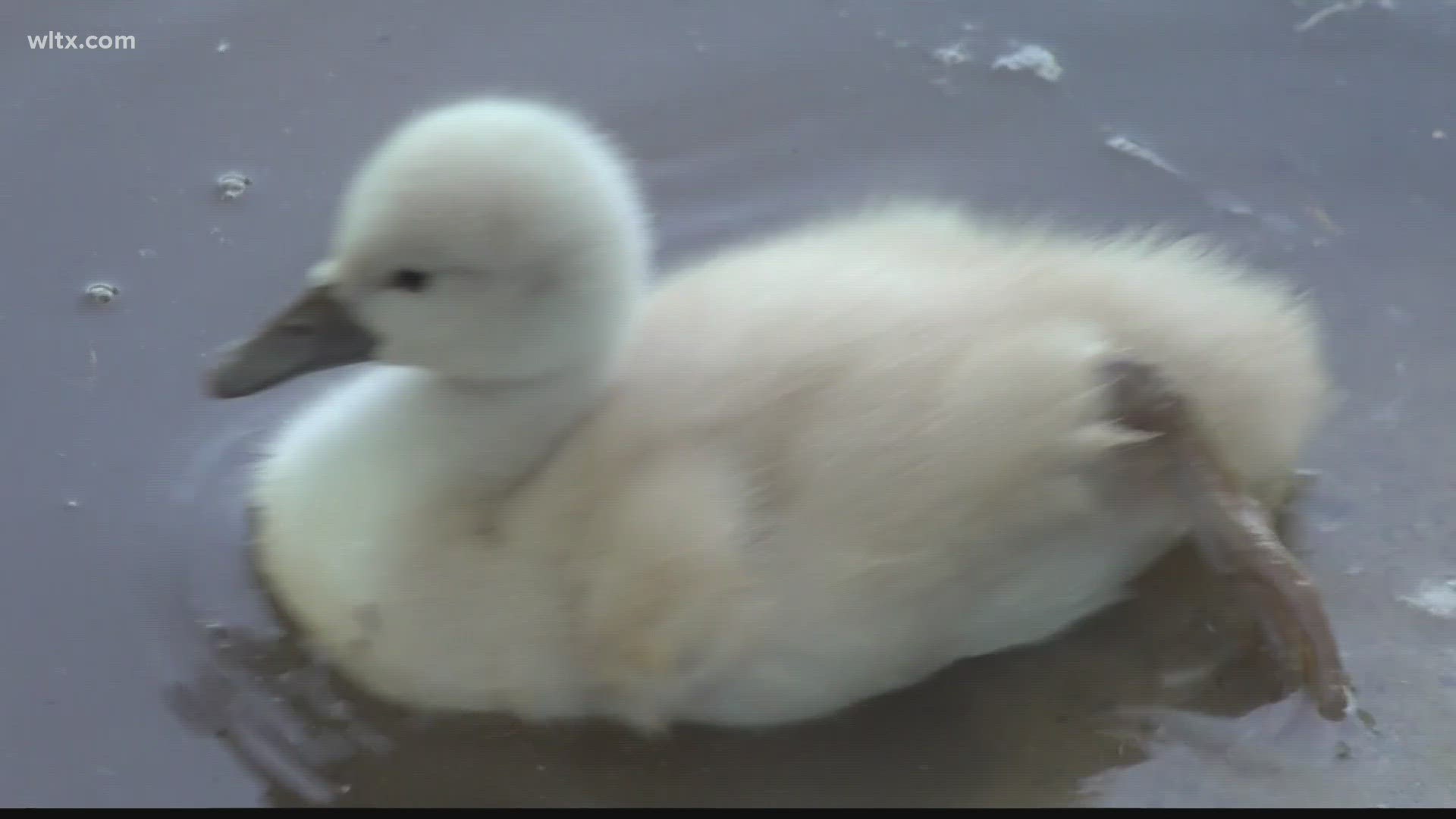SUMTER, S.C. — It’s breeding season at Swan Lake Iris Gardens, which means lots of baby swans out on the lake as eggs are starting to hatch.
Baby swans, called cygnets, take about 65 days to hatch. Sumter residents like Tammy Campinha and Albert Counts tell me they like to come out to Swan Lake in the spring to see the plants, the sunshine and the little cygnets.
"It’s babies, you know?" Campinha says. "I love babies of all sorts so definitely it’s heartwarming and it’s good to see."
Synn Stacks and Rhakim Bias agree. The two say they just moved to Sumter from Philadelphia and Tennessee, and are impressed with how the park is maintained.
"You ain't got to go to no zoo or anything to see them," Bias shares. "You just got to go to the park."
"That’s a big job for real because you got to maintain this whole park one," Stacks adds. "Then you got to maintain the swans, feed 'em, keep the water clean too, so it’s a big job."
It’s a job Parks and Gardens Manager Art Hill is in charge of. He and Swan Lake rangers monitor the nests and the cygnets as they hatch.
"We had some flooding which flooded a couple of the nests and the birds just didn’t go back to the eggs but we’re around 20 right now, so that’s — with the Australians — that’s fine because we’ve got plenty of them," Hill laughs.
In addition to the Australians, there are seven other types of swans in the park and about 175 birds total. Hill says they’ve learned to leave the swans in the water to learn how to swim for the first six to eight weeks.
"We found out all top breeders say leave the birds out on the lake. Within 72 hours, the parents will have the birds actually swimming," Hill explains.
Then, rangers will pin the birds’ wings and make sure to keep them away from siblings so they don’t breed together.
"You start seeing leg issues, wing issues, neck deformities so we kind of have to keep them separate, so that’s a pretty good chore," Hill says about why they clip the wings, marking male from female.
As the birds mature, they help out the lake, Hill says. While the black-necked swans regurgitate food to feed their babies, the other swans will "get to picking and pecking on grass and that’s what keeps our lake really clean," according to Hill.
While the rangers work to monitor the cygnets and the nests, Hill says visitors have an important job.
"If you see one, just leave it where it’s at," Hill cautions. "If you get close to it, [the parent is] going to come up and ruffle his feathers and he could peck at you."
That makes it easier for the rangers to maintain the park and keep the birds happy and populated, so residents like Campinha can continue to enjoy Swan Lake.
"You see a lot and you learn a lot, so it’s important that we keep that going," Campinha shares.
Swan Lake is open 7:30 a.m. to dusk every day, and entry is completely free.

